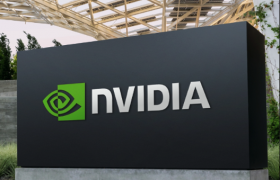How 128T Fits into Juniper's SASE Strategy

It's clear that Juniper is ramping up its broad Connected Security portfolio as well as positioning recent acquisitions for the Secure Access Service Edge (SASE) market, where virtualized services such as software-defined wide-area networking (SD-WAN) meet cloud security services.
This week Juniper Networks (JNPR) revealed one customer who says the networking company has the goods to be a major player. The customer pointed to the acquisition of 128 Technology (128T) for $450 million last year as a major catalyst.
Mark Marquez, the executive VP of technology for Momentum Telecom was already deploying 128T’s software-defined wide-area networking (SD-WAN) solution. He liked the way 128T’s session-oriented technology let him use micro-segmentation for specific applications and allowed traffic to selectively flow through the router to a range of third-party security products. The approach has helped integrate the management of his company’s network, which provides U.S. businesses with cloud-based unified communications-as-a-service, along with interconnection to over 200 carriers and cloud providers.
Now that 128T is part of Juniper Networks, Marquez is looking forward to even more convergence through the integration of Juniper’s advanced security with 128T’s networking. The result will be SASE for his customers. And while early in the process of adopting the combined solution, Marquez is confident Momentum will profit from the results.
The Foundation: 128T SD-WAN
Marquez adopted SD-WAN at Momentum a couple of years ago. As a provider of managed network solutions, the service provider deals with clients from a mix of environments, including MPLS or private IP. It’s clear, however, that despite the differences, users are looking to move to the cloud, albeit at different paces. As an on-ramp to cloud application delivery, Marquez knows SD-WAN is the answer.
“We were looking for an SD-WAN solution that would really fit our customers’ work,” Marquez said during a recent Juniper virtual event for industry analysts. “[A]ll of their applications… everything was going towards the cloud,” he said.
Marquez’s SD-WAN choice was 128T’s Session Smart Routing technology. By using sessions, not tunnels, 128T is able to dynamically link IT managers or end users to specific portions of a cloud network while optimizing performance. As a result, Session Smart Routing can save what Juniper now claims is up to 75% of costs related to routing traffic in legacy MPLS networks.
When Marquez kicked the tires he liked what he found. “We looked at the security around [128T’s solution], we looked at the adaptive encryption around it. We looked at the speed, the simplicity, the network orchestration, really everything around the product, and we built it out in all of our data centers and offices. It’s been a great partnership.”
Marquez sees the partnership expanding significantly with Juniper's ownership. Now, in addition to the benefits of Juniper’s containerized and virtual firewall capabilities, integral distributed denial-of-service (DDoS) protection, encrypted traffic insights (available without having to intercept encrypted traffic), risk profiling, and machine-learning, Juniper is able to provide session-aware Web and content filtering and analytics. The result is a SASE solution that works with on-premises or cloud-based resources.
A Strategic Shift for Juniper
Momentum’s experience with Juniper reflects the company’s shift in corporate mission from networking hardware to cloud data center, automated WAN, and AI-driven enterprise solutions, all based on network functions virtualization (NFV) and SD-WAN with embedded security.
“It’s impossible to be a networking company without security,” said Juniper CEO Rami Rahim during the analyst event held this week.
For example, Arista Networks (ANET) touts its Zero Trust Security approach, as well as a stress on AI and automation.
To compete, Juniper has armed itself with a spate of acquired technologies, starting with its acquisition of Mist Systems in 2019 — a move that began the pivot away from legacy networking. Mist’s wireless networks, managed by cloud-based machine learning algorithms, are now part of Juniper’s AI strategy.
The Mist deal was followed by the acquisition of WAN automation specialist Netrounds later September of 2020, then 128T. Juniper closed out 2020 with the acquisition of Apstra, a pioneer of intent-based networking and intent-based analytics.
Each of these buys has contributed in various ways to Juniper’s enterprise lineup. And the result is a path that Mark Marquez is happy to follow. “Yes, Juniper’s traditionally been a hardware company, but they cover all of the pieces where everybody is going, and I think they've got a good vision for getting there and getting there quickly."














